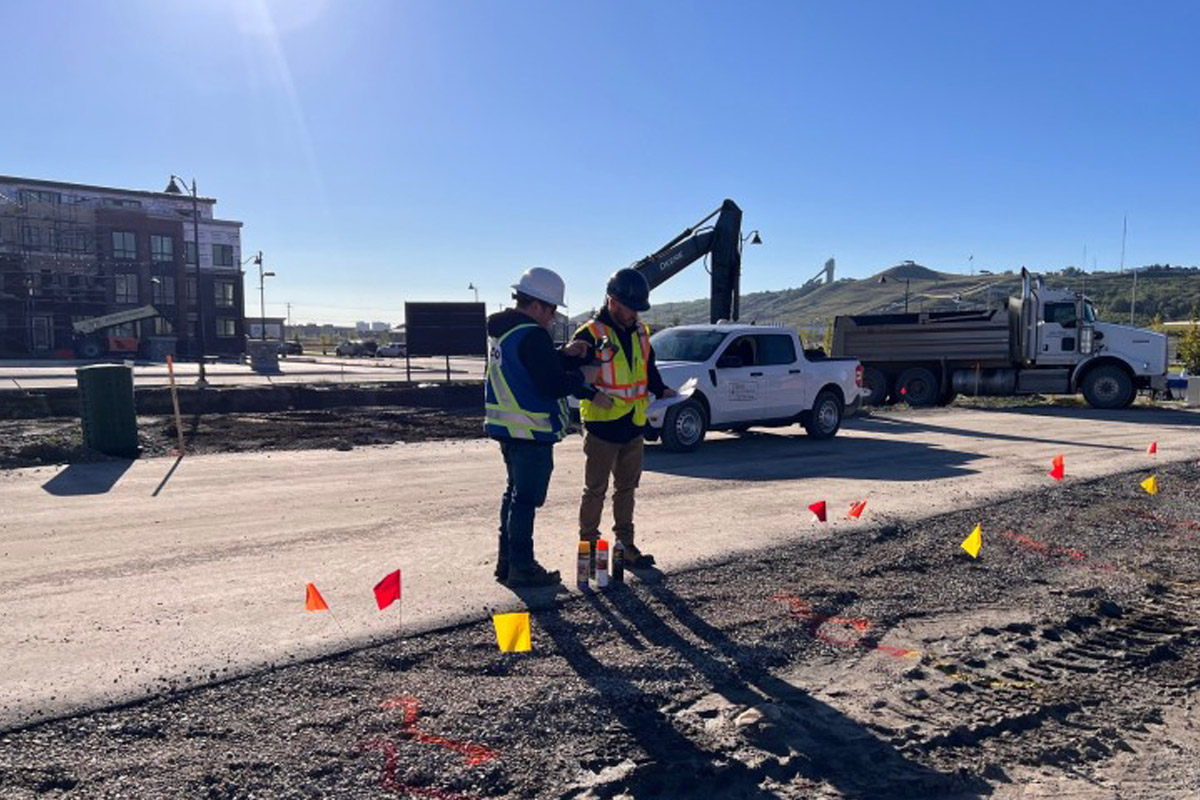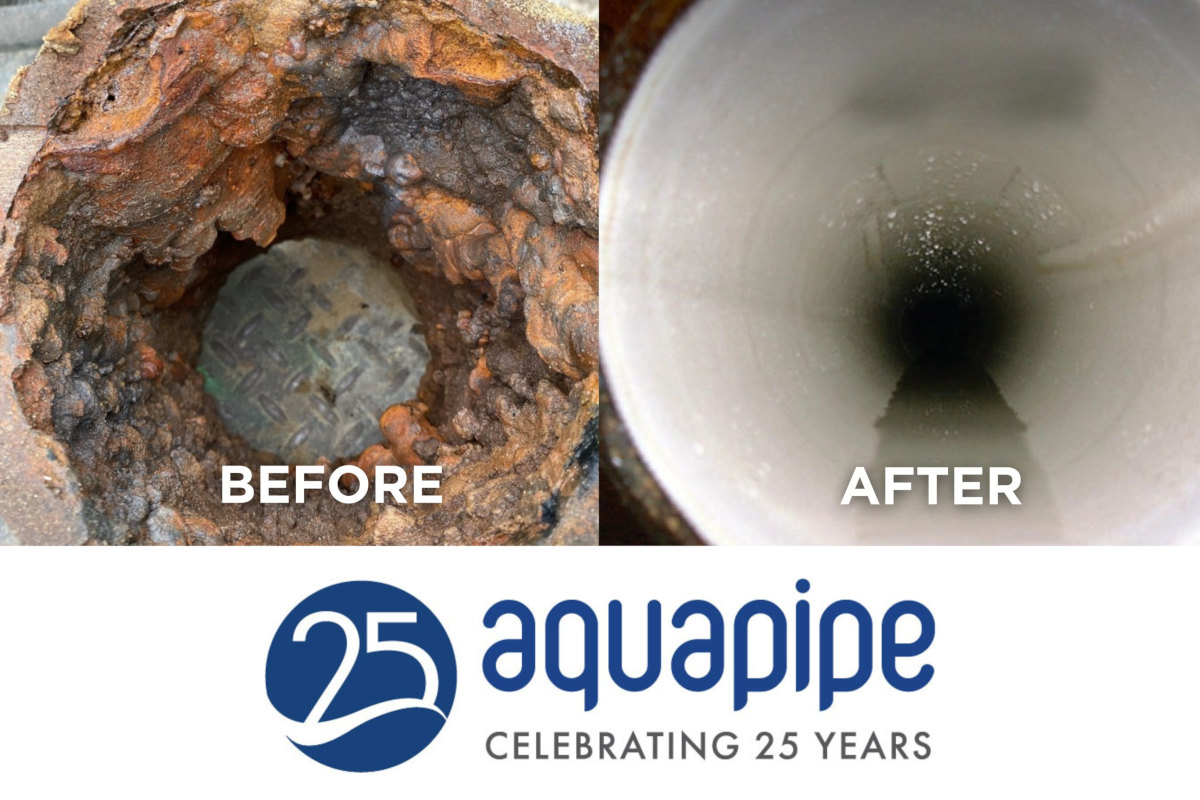
Top Canadian Engineering Firms – 2024 Survey Results
This marks the fourth year that – as part of the overall Top 50 Trenchless Engineering Firms in North America survey – we asked firms to also include separate trenchless revenue data for Canada. We used this subset of data to create the list you see here of the Top Trenchless Engineering Firms in Canada.
The Top 50 survey results are one of the highlights of the Trenchless Technology magazine editorial calendar. The Top 50 survey helps tell the tale of the size of the overall trenchless construction sector in North America.
Starting in June, Trenchless Technology contributing editor Andrew Farr begins the process of contacting trenchless engineering firms across the continent to submit surveys to compile this list.
The Top 50 list ranks firms by their overall North American revenue. Trenchless revenue on the survey is defined as the net revenue generated by a firm from trenchless professional services including design, construction oversight and inspection using new installation or rehabilitation methods.
Since Trenchless Technology Canada is a Canadian-focused publication, we wanted to breakdown that North American list even further and highlight the firms doing work across Canada.
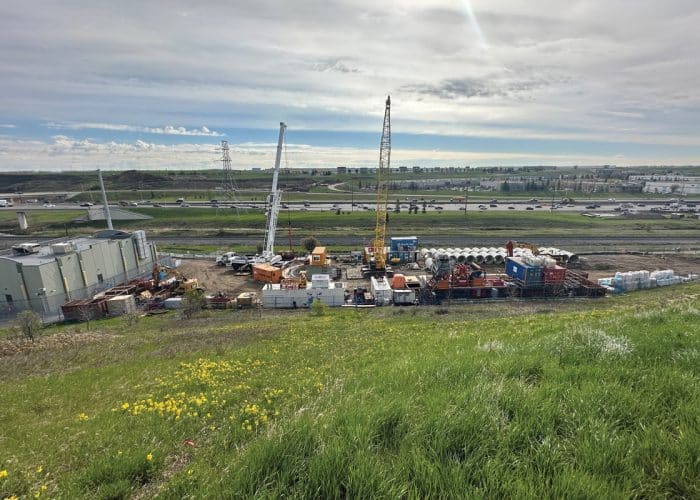
Also included in our list is where the firms rank among the Top 50 Trenchless Engineering Firms in North America. For reference, we’ve also included a column that indicates a firm’s reported Canadian revenue from our 2023, 2022 and 2021 lists. If there is an N/A in a column it means that the firm either did not participate in the survey that year or they did not provide separate Canadian revenue.
We realize this is not a complete list and that there are many engineering firms working in the trenchless field across Canada.
We hope that this is something we can build on in the future as more Canadian trenchless engineering firms complete the survey.
Only firms that indicated revenue for Canada are included here.
Farr coordinates the survey for Trenchless Technology, and he can be reached at afarr@benjaminmedia.com. If you’re a firm that does trenchless work in Canada and are not included on this list, email Mike Kezdi, managing editor, at mkezdi@benjaminmedia.com.
The complete North American Top 50 list can be read in the November/December issue of Trenchless Technology or online at trenchlesstechnology.com/2024-top-50-trenchless-engineers-survey.
2024 Top Trenchless Engineering Firms Project Spotlight
This year, we asked all the engineering firms that listed Canadian revenue to submit a spotlight project that they were involved with. We asked that the project be part of their reported Canadian Total Trenchless Net Revenue for 2023 Labour Hours (or last fiscal year).
You’ll find those spotlight projects listed on the following pages. Only the firms that responded to the request are included in this review.
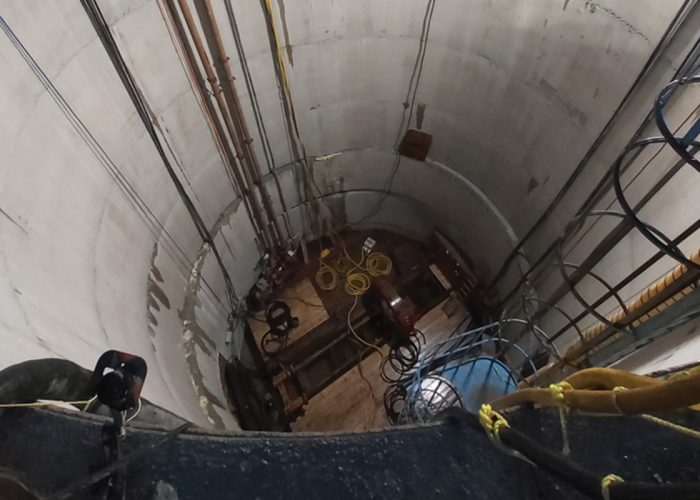
AECOM
Name of Project
Douglas Road Main No.2 – Still Creek Section
Where the Project Took Place
Vancouver, British Columbia
Your Company’s Role in the Project
Prime Consultant and Engineer of Record
Date Project Completed
Design 2020, Construction 2025
Why This Project Is Notable
AECOM provided conceptual, preliminary and detail design on this Metro Vancouver project to install approximately 2.7 km of 1524mm diameter watermain using open cut and trenchless microtunnelling methods to cross the Still Creek waterway, the Trans Canada Highway and, BNSF and CN Rail infrastructure. The Still Creek section of the watermain had no readily identifiable route for a new watermain with a larger diameter than the existing main installed approximately 70 years earlier. During the conceptual design phase the project team conducted a business case assessment of three alignment options that considered constraints and risk factors, evaluated them against set project delivery criteria and recommended a preferred alignment alternative that was advanced to detail design. Significant valve chambers with large excavation footprints in heavily used areas outside the Client’s jurisdiction added a unique challenge to this project. The project was tendered in three separate packages to give the client greater schedule control and allow them to better manage external stakeholder requirements.
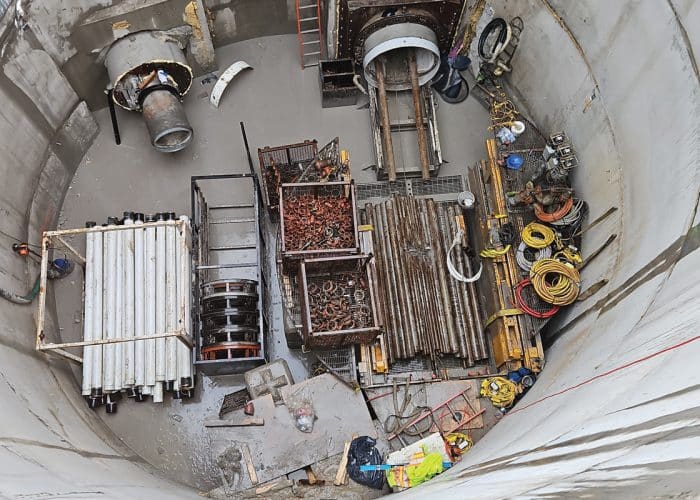
ALDEA SERVICES
Project Name
Queen Street Watermain & Sanitary Forcemain
Project Location
Brampton, Ontario
Your Company’s Role in the Project
Engineering Subconsultant for the Microtunnel Design and Construction Inspection
Completion Date
April 2024
Why this Project is Notable
The watermain featured a 353-m long, two-pass slurry microtunnel drive. The forcemain included a 269 m long, single-pass slurry microtunnel drive. Both drives were 1,200 mm in internal diameter and incorporated vertical and horizontal curvatures with a downward gradient from the launch shaft to the low point beneath the river. The drives were launched from a common launch shaft. The project area and alignment pose challenges due to its proximity to TRCA lands, which required meticulous planning for the river crossings, negotiating multiple existing utility alignments (including existing utilities in poor condition), existing bridge foundations, major roadways, and the habitat of the endangered redside dace fish within the overlying river. To reduce the environmental impacts, composite curved microtunnels (with horizontal and vertical curvature) were used for the river crossings to reduce shaft depths and avoid adjacent utilities and structures. This innovative engineering approach allowed for the successful negotiation of the challenging terrain while protecting the delicate ecosystem and reducing the costs associated with deep construction shafts.
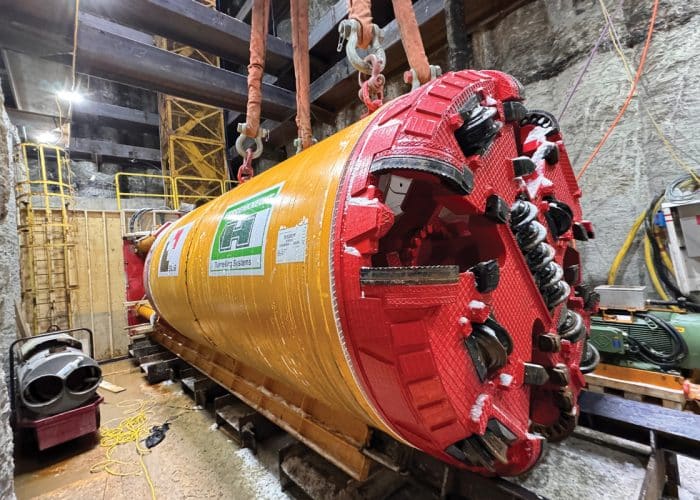
ASSOCIATED ENGINEERING
Name of Project
Millcreek Combined Sewer Rehabilitation Stage 1: Tunnel
Where the Project Took Place Edmonton, Alberta
Your Company’s Role in the Project
Design-Build Consultant
Date Project Completed
Microtunnel Drive Completed June 2024
Why This Project Is Notable
The Mill Creek combined sewer trunk system conveys wastewater and rainwater from south Edmonton to the Gold Bar Wastewater Treatment Plant. To prepare for the rehabilitation of the trunk system, existing flows required diversion. To do this required the design and construction of an 843 m long, 2,100 mm diameter, HDPE lined microtunnel drive 30 m deep constructed through highly variable strength clay shale and sandstone. A secant pile working shaft 16 m long by 6 m wide and 31 m deep was designed and constructed in a congested neighborhood and elementary school playground. Hand tunnelling was used to connect to the existing trunk locations.
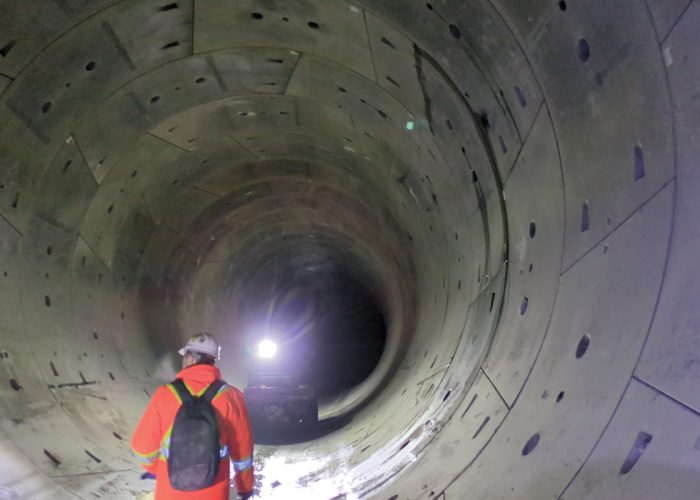
BLACK & VEATCH
Name of Project
Don River & Central Waterfront – Coxwell Bypass Tunnel
Where the Project Took Place Toronto, Ontario
Your Company’s Role in the Project
Engineering Design and Construction Management
Date Project Completed
Full completion anticipated Q4-2024
Why This Project Is Notable
In 1987, the International Joint Commission designated Toronto’s waterfront as one of 43 polluted Areas of Concern in the Great Lakes Basin. To address this, the City of Toronto initiated a program with two main goals: ensuring future capacity in the sanitary trunk sewer system and enhancing water quality in the Don River and Lake Ontario. This led to a five-stage plan. Black & Veatch managed the design and construction of the first and largest stage, the Coxwell Bypass Tunnel (CBT). Construction began in 2018 and achieved substantial performance in September 2024. The CBT project involved the construction of a 10.5 km rock tunnel with a 6.3m I.D., five large-diameter storage shafts, and 14 small-diameter drop shafts, providing a total storage capacity of approximately 720,000m³. Once operational, the CBT will divert sewage from the existing Coxwell Sanitary Trunk Sewer, which serves about 75 per cent of Toronto, allowing for essential maintenance and reducing combined sewer overflows and stormwater runoff into the Lower Don River. The project owner is the City of Toronto.
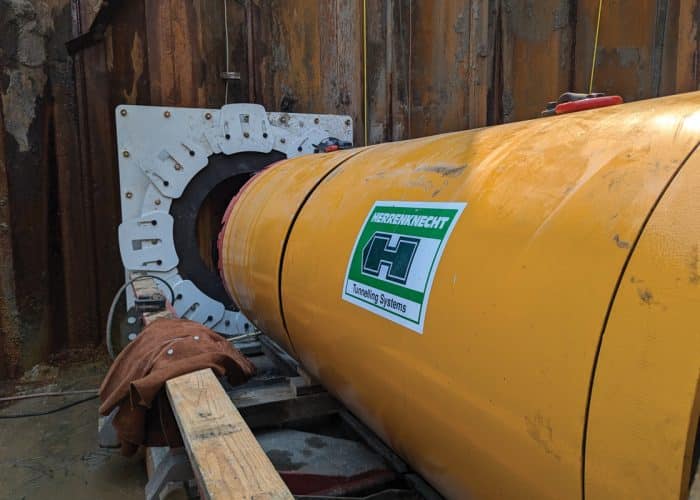
CCI INC.
Name of Project
Fraser Surrey Canola Oil Transload Facility DP World Microtunnel
Where the Project Took Place
Surrey, British Columbia
Your Company’s Role in the Project
Engineering Design and Construction Support
Date Project Completed
October 2024
Why This Project Is Notable
Two challenging parallel 42-in. microtunnel installations, each approximately 150 m in length, were successfully completed in complex ground conditions including peat, wood debris, silts, and clays. With groundwater elevation close to the surface, the shaft construction required careful planning to ensure watertight integrity during both the launch and reception phases. Additionally, the tunnels were installed beneath several active rail tracks, necessitating a strong focus during the design phase on settlement and heave prevention to meet the rail owners’ requirements. This focus led to extensive settlement monitoring throughout the construction process.
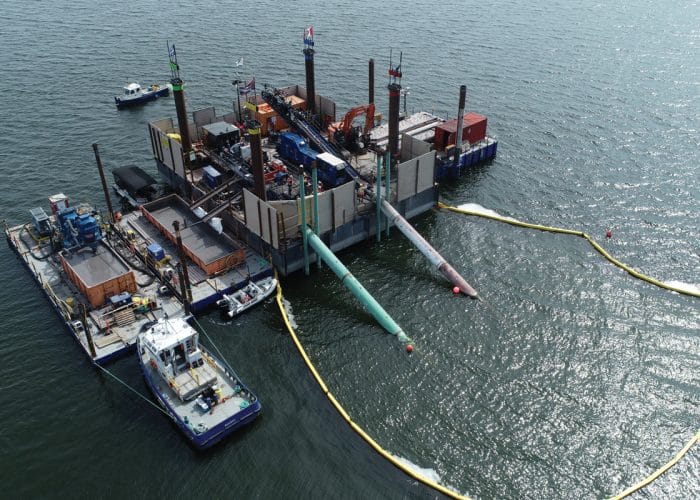
GHD
Name of Project
Hydro Quebec’s Hertel-New York Interconnection
Where the Project Took Place Lacolle, Quebec
Your Company’s Role in the Project
Environmental Assessment, Geotechnical Investigations, Planning, Design, Contractor Prequalification, Construction Oversight and Site Inspection
Date Project
Completed in 2024
Why This Project Is Notable
The twin horizontal directional drills (HDD) included for an intersect installation method for the 880 m long curved directional drill shots. The GHD Ltd. professional effort included for the planning, detailed design and construction of twin 450-mm parallel HDPE casing from land to marine environment. The curved alignment included the placement of four steel conductor casing(s) installed through the overburden and socketed into the shale bedrock by both pneumatic hammer and downhole hammer technologies. The project included extensive protection and monitoring of both sensitive land and water environments. The overall project will be responsible for the green house gas carbon emission reduction of 37 million metric tonnes through the use of clean Canadian energy delivered from Canada. More than 1 million residents and business in New York City will be serviced by the new electrical supply.
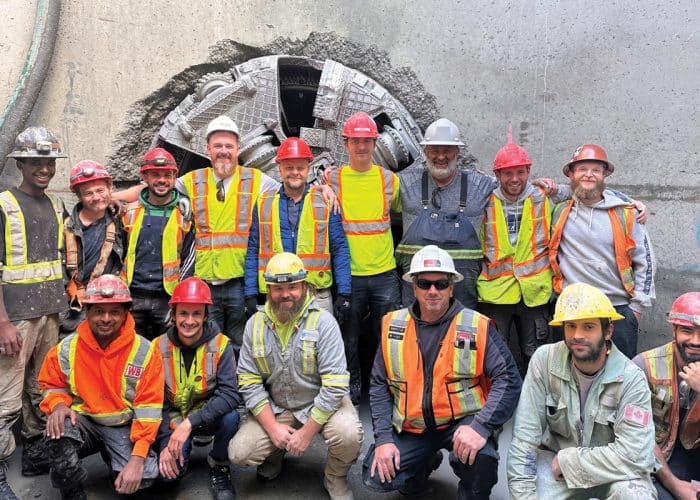
Jacobs
Name of Project
The City of Calgary’s Nose Creek Sanitary Trunk Sewer – Phase B Contract 4
Where the Project Took Place Calgary, Alberta
Your Company’s Role in the Project
Engineer and Project Manager
Date Project Completed
Tunnel completed October 2024
Why This Project Is Notable
The Nose Creek Sanitary Trunk Sewer included the installation of 1,500 m of 1,650 mm RCP jacking pipe by microtunnelling, making it the longest microtunnel boring machine drive of this size in North America. Ward and Burke were the contractor, and the tunnel was constructed using a Herrenknecht AVN 1500TB. Intermediate jacking stations were installed as a backup but were not required.
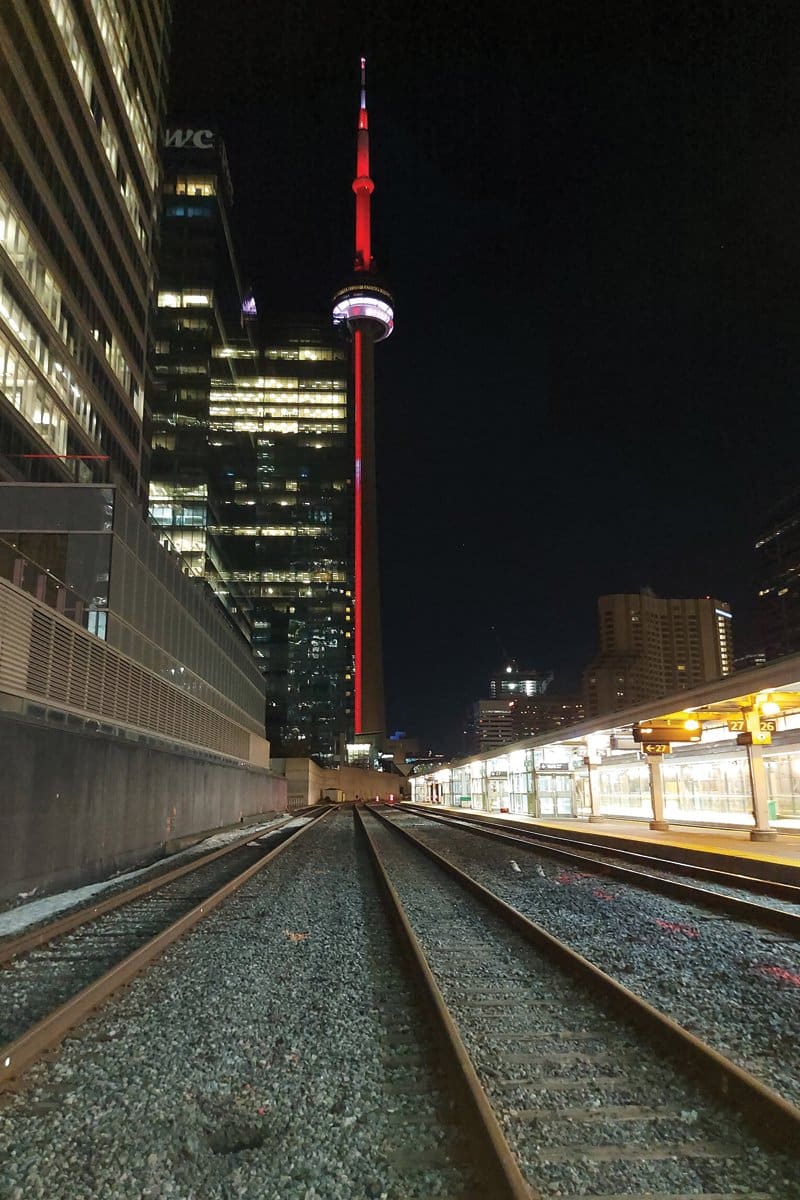
T2 Utility Engineers
Name of Project
The Regional Express Rail (RER Package 3)
Where the Project Took Place
Greater Toronto and Hamilton Area
Your Company’s Role in the Project
T2 Utility Engineers (T2ue) completed a Subsurface Utility Engineering (SUE) investigation for ONxpress Transportation Partners. T2ue collaborated with the ONxpress Construction, Design and Engineering Team with the electrification of rail corridor.
Date Project Completed
Ongoing with T2ue’s component having started in September 2022.
Why This Project Is Notable
ONxpress Transportation Partners has been selected as the preferred partner to deliver the Regional Express Rail (RER-3) project for Infrastructure Ontario and Metrolinx. The RER-3 Program aims to upgrade the GO Rail network from a commuter-based system to a regional rapid transit network, modernizing every aspect of the train service. The primary goal is to offer more frequent, all-day service across the Greater Toronto and Hamilton Area (GTHA), with trains arriving approximately every 15 minutes. In addition, the outer areas of the network would receive service every 30 to 60 minutes. The RER Program is divided into three main contract packages, with the On-Corridor Package 3 (RER-3) being the largest.



